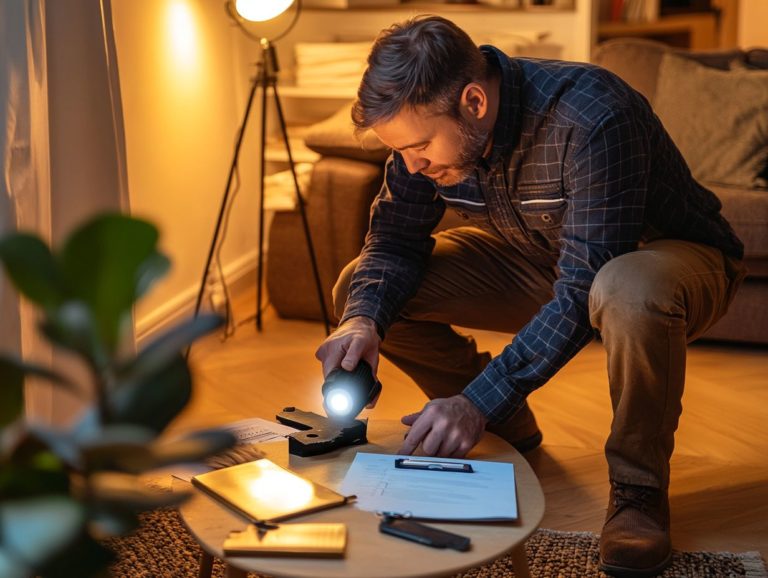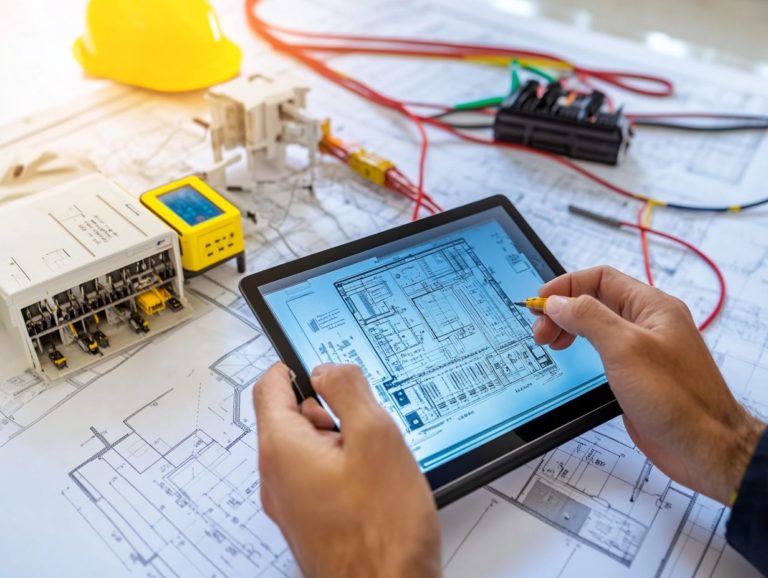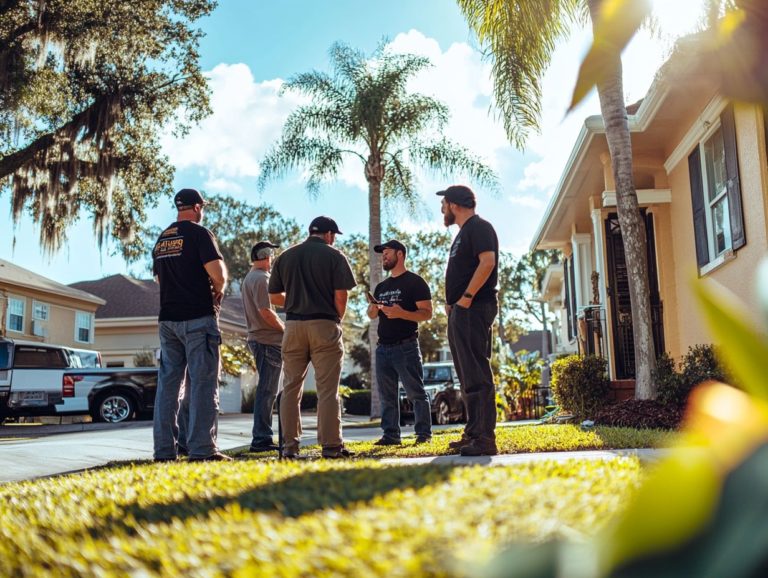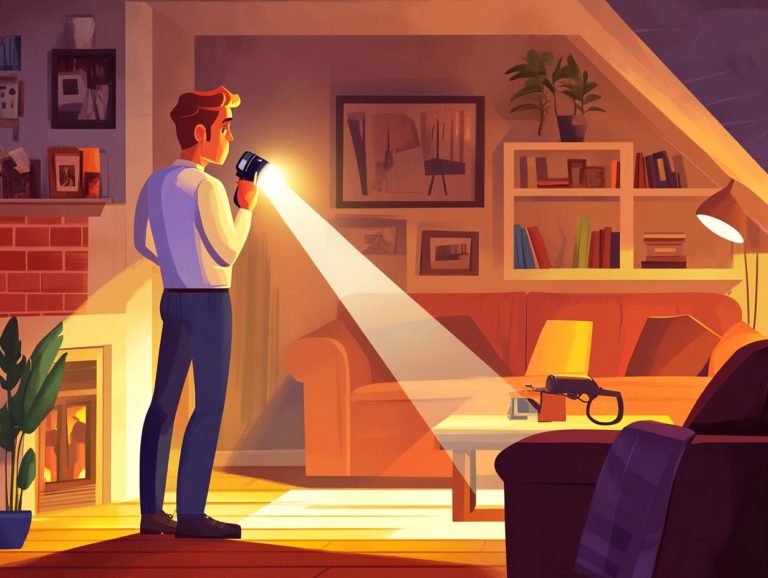The Role of Home Inspections in New Construction
When embarking on the journey of building a new home, it’s easy to let the thrill overshadow the critical task of ensuring its quality and safety.
Home inspections become an essential part of this process, acting as a protective shield against potential issues that may surface once you’ve moved in.
This guide delves into the importance of home inspections for new constructions, highlighting how early assessments can save you from expensive repairs down the line. This guide also offers insights on how to choose a qualified inspector to ensure peace of mind.
Keep reading to ensure your dream home is built on a solid foundation!
Contents
- Key Takeaways:
- Why Home Inspections are Important in New Construction
- The Home Inspection Process for New Construction
- Common Issues Found in New Construction Inspections
- The Benefits of Early Home Inspections
- Choosing a Qualified Home Inspector
- Frequently Asked Questions
- Why should you get a home inspection for new construction?
- When should a home inspection take place in the new construction process?
- Who is responsible for scheduling and paying for a home inspection in new construction?
- What areas of the home are typically included in a home inspection for new construction?
- Can issues identified during a home inspection in new construction be fixed by the builder?
- Are home inspections necessary for new construction homes?
Key Takeaways:
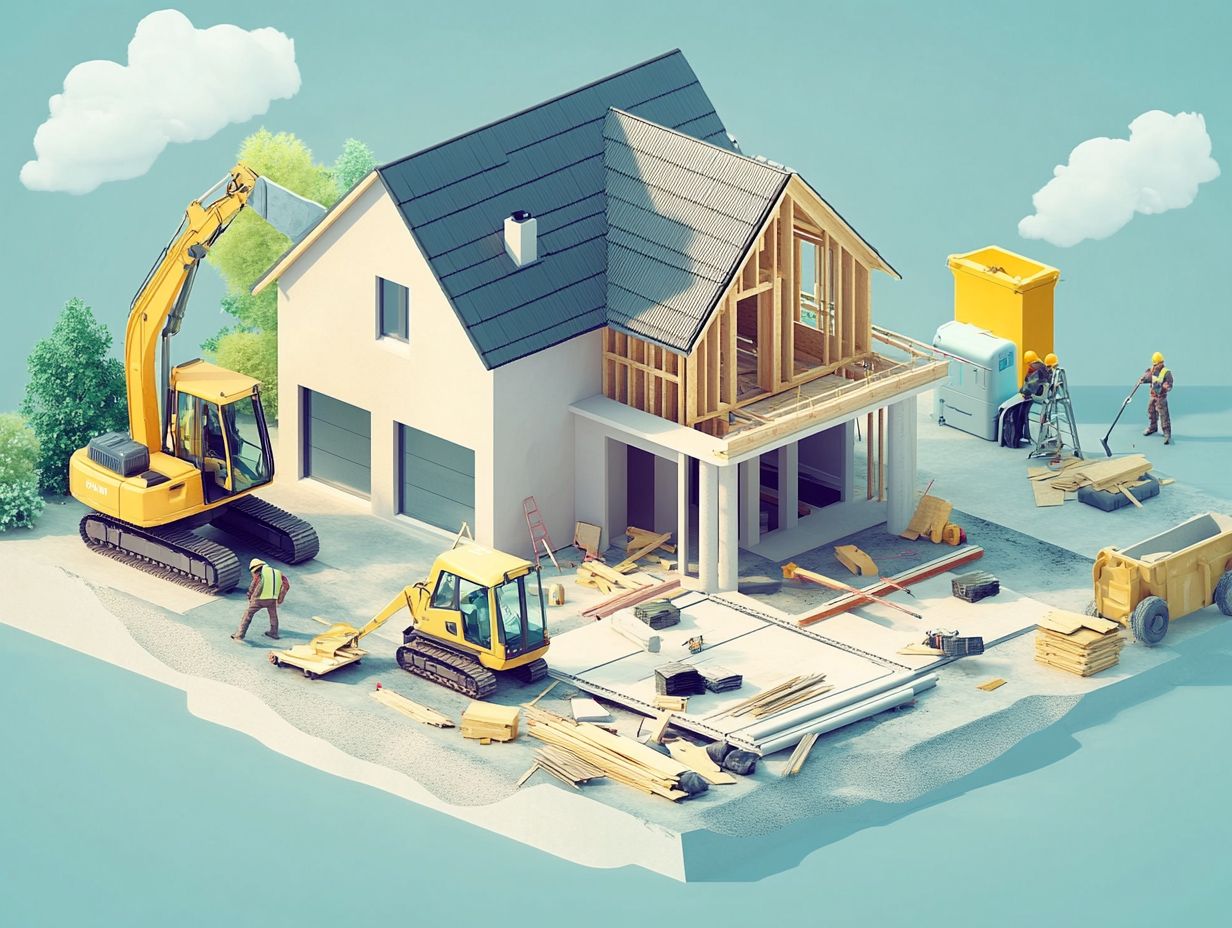
Home inspections are crucial in new construction to ensure quality and safety. During a new construction inspection, expect a thorough examination of the property and its components, which is why understanding the role of home inspectors is essential.
Identifying and addressing defects early on through inspections can prevent expensive repairs and delays in the future.
Why Home Inspections are Important in New Construction
Home inspections play an essential role in new construction, as outlined in the role of home inspections in real estate, ensuring that properties align with the latest building codes and uphold structural integrity.
This careful approach gives you peace of mind for home buyers and investors, serving as a safeguard against potential pitfalls. By engaging reputable inspection services like Elite Inspections, you can identify and address compliance issues early in the construction process. For more insights, check out understanding the need for home inspections, which can substantially reduce the risk of future complications and costly repairs.
This proactive approach not only fosters quality control throughout the project but also elevates the overall value and safety of your real estate investment.
Ensuring Quality and Safety
Ensuring quality and safety in new construction demands a meticulous approach to various components, from mechanical systems to safety features. All of this is laid out in a comprehensive inspection checklist.
This checklist is your essential tool for pinpointing issues within critical installations like Heating, Ventilation, and Air Conditioning (HVAC), plumbing, and electrical systems.
A thorough review allows you to verify proper functioning, ensuring energy efficiency and user comfort while reducing potential hazards.
For example, HVAC systems should be inspected for correct airflow and temperature regulation, while plumbing must be free from leaks and guarantee proper drainage. Electrical installations require a detailed analysis of wiring and safety measures to prevent future malfunctions.
By prioritizing these elements, you can drastically lower your risks today, ultimately delivering a safer and higher-quality living environment.
The Home Inspection Process for New Construction
The home inspection process for new construction entails a meticulous evaluation of various elements within the property. This thorough examination culminates in a comprehensive inspection report that highlights any issues discovered and emphasizes the role of home inspections in the home buying process, ensuring compliance with the builder warranty.
What to Expect During an Inspection
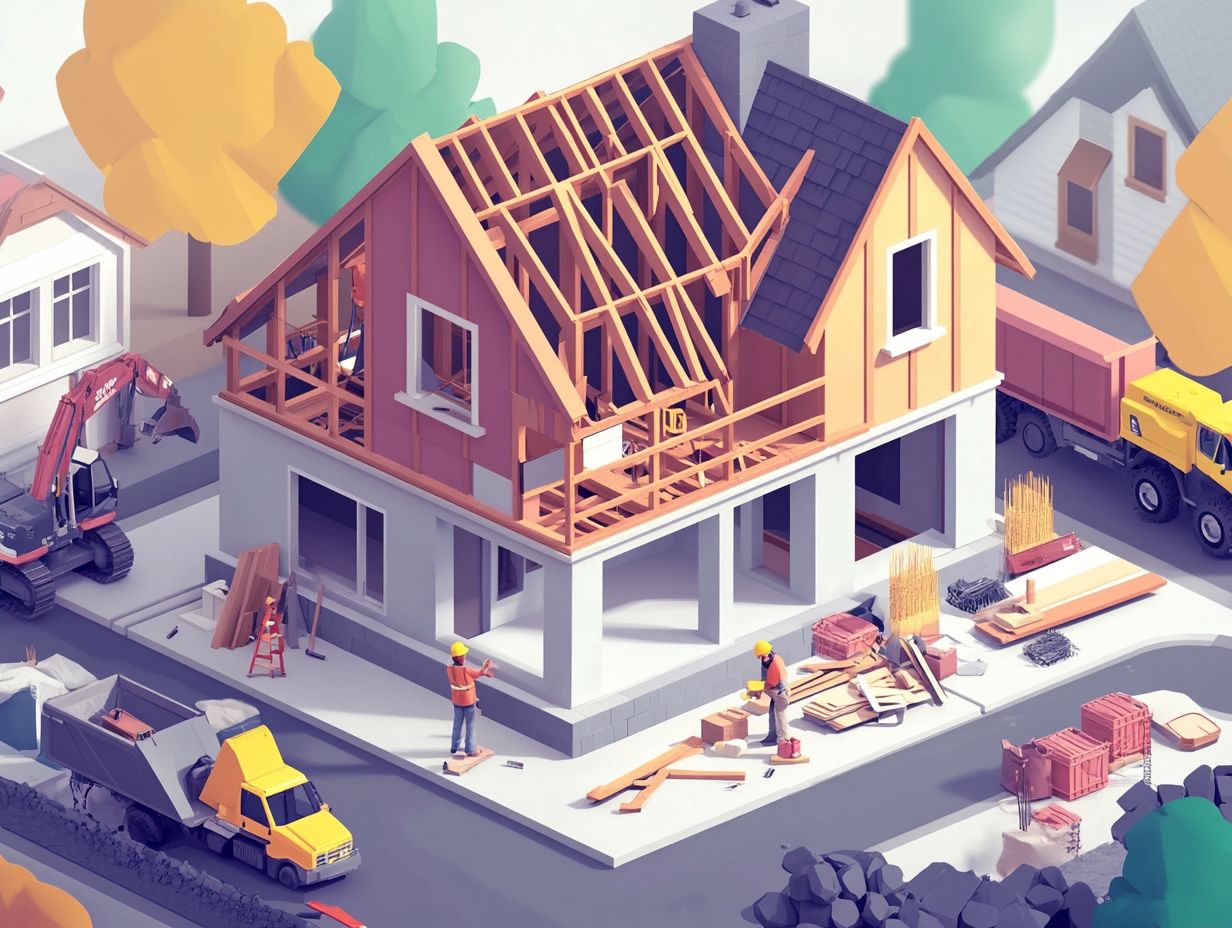
During an inspection, you can expect a comprehensive examination of the property, meticulously conducted against an inspection checklist that evaluates compliance with building codes and safety features.
This thorough process covers various components, including structural integrity, foundation stability, and the functionality of essential mechanical systems like HVAC and plumbing.
By understanding how each of these elements is assessed, you ll gain valuable insights into the property’s overall condition and potential repair costs.
It s wise to prepare for the inspection by gathering relevant documents and formulating any questions you may have; this will facilitate a constructive dialogue with the inspector.
By being proactive, you empower yourself to make informed decisions about your investment.
Common Issues Found in New Construction Inspections
In the realm of new construction inspections, you may encounter a range of common issues, from foundation problems to various code violations.
Identifying these concerns early on can spare you from considerable headaches and unexpected expenses in the future.
Identifying and Addressing Defects
Identifying defects during a home inspection is crucial. Understanding the home inspector’s role ensures compliance with building codes and maximizes your builder warranty.
A comprehensive inspection goes beyond just spotting visible flaws. It also uncovers hidden issues that could lead to expensive repairs in the future.
Skilled inspectors employ a variety of methods, such as special cameras that detect heat differences and water testing, to reveal potential concerns that might otherwise slip through the cracks.
This thorough approach equips you with a detailed inspection report, highlighting any discrepancies that could jeopardize the structural integrity and safety features of your home.
By addressing these defects promptly, you not only protect your residents but also enhance the longevity and value of your investment. Ultimately, this reinforces your goal of creating a safe and sound living environment.
The Benefits of Early Home Inspections
The advantages of conducting early home inspections are significant. They serve a vital purpose in averting expensive repairs and delays, making understanding the process of home inspections essential for any homeowner.
By prioritizing these inspections, you empower yourself to fully capitalize on your builder warranty, all while enjoying peace of mind throughout your home purchasing journey.
Preventing Costly Repairs and Delays
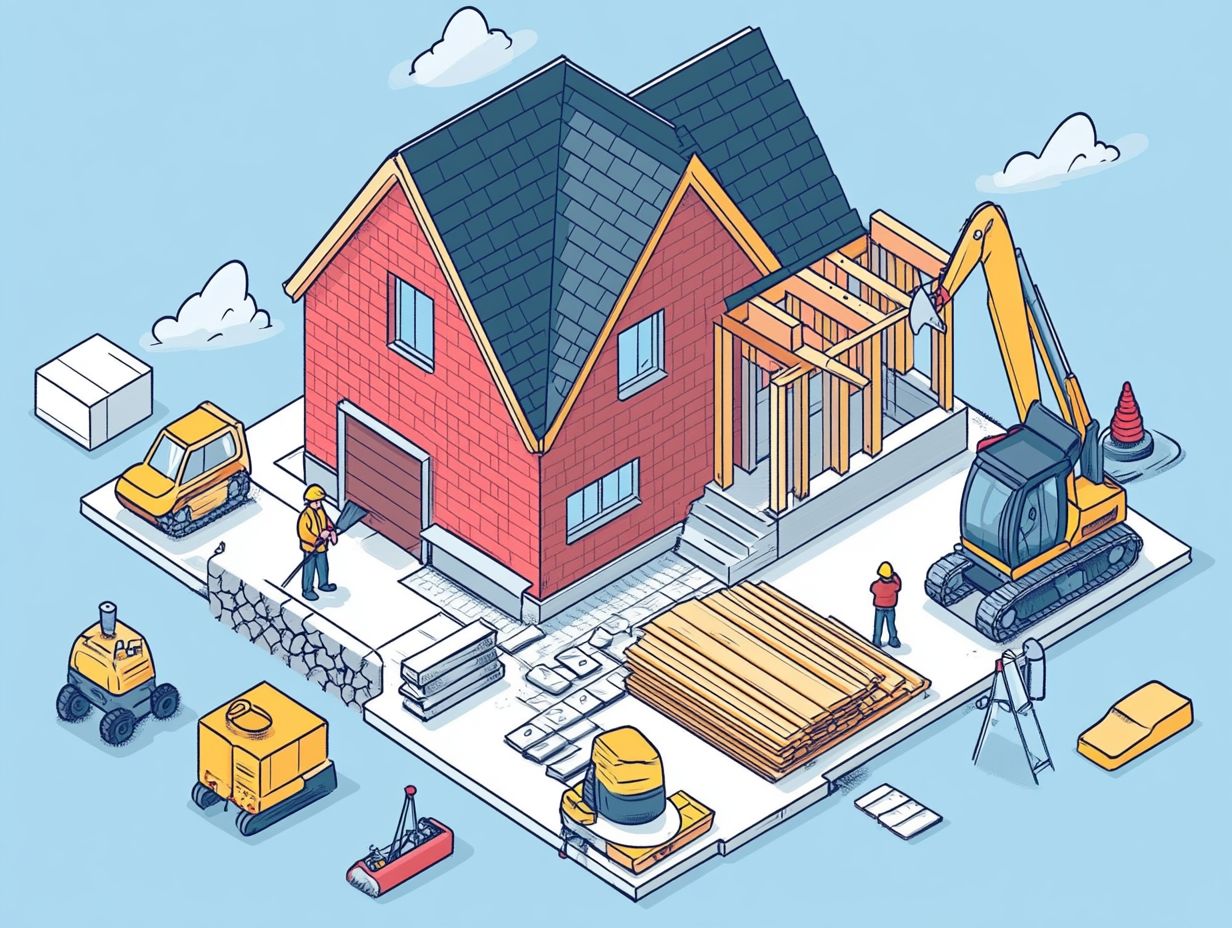
Preventing costly repairs and delays in new construction hinges on using a meticulous inspection checklist. This checklist thoroughly evaluates all critical aspects, including mechanical systems and adherence to building codes.
By embracing a proactive approach to inspections, you mitigate risks and ensure that potential issues are identified and addressed before they escalate into significant problems.
For instance, overlooking a plumbing issue in the early stages could lead to severe water damage. This results in hefty repair costs and extended project timelines. Similarly, neglecting to rigorously inspect electrical systems might create hazardous conditions, triggering safety violations that can bring progress to a standstill.
Regular inspections are your best defense against costly surprises! They promote a smoother workflow and protect your project budget from unexpected expenses.
Choosing a Qualified Home Inspector
Selecting a qualified home inspector is essential for guaranteeing a comprehensive property inspection. This ensures that it meets building codes and clearly identifies any compliance issues in the final report.
This choice lays the foundation for knowledge-based decision-making and peace of mind in your real estate journey.
What to Look for in a Home Inspector
When selecting a home inspector, pay close attention to key qualifications. Look for relevant certifications, extensive experience in property inspections, and adherence to a thorough inspection checklist.
It s imperative to consider the inspector s educational background and whether they are members of professional organizations. These often mandate ongoing education and a commitment to ethical standards. A solid grasp of current building codes and regulations is equally important; this expertise ensures the inspector can identify issues that may not be immediately apparent.
Engaging in a comprehensive interview process is essential. By asking the right questions, you can uncover the inspector s depth of knowledge and their approach to handling challenges. This conversation not only builds trust but also allows you to assess their commitment to ensuring that properties meet safety and quality standards.
Frequently Asked Questions
Why should you get a home inspection for new construction?
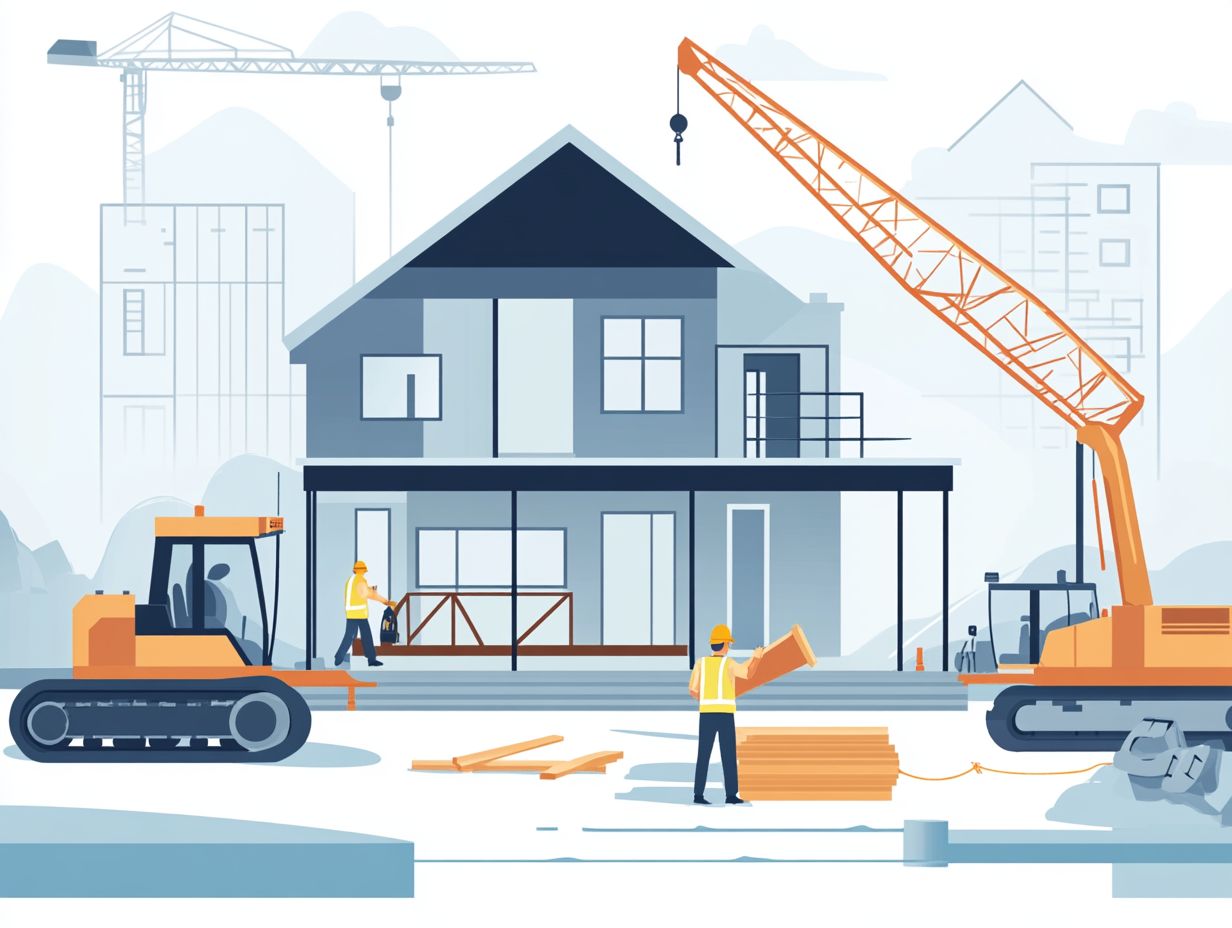
The purpose of a home inspection in new construction is to ensure that the home has been built in accordance with local building codes and industry standards. It also provides buyers with a comprehensive understanding of the condition of the property before finalizing the purchase, highlighting the role of home inspections in real estate transactions.
When should a home inspection take place in the new construction process?
A home inspection should take place after the home has been built but before the final walkthrough with the builder. Understanding the role of a home inspector allows for any issues to be identified and addressed before the home is considered complete.
Who is responsible for scheduling and paying for a home inspection in new construction?
The buyer is usually responsible for scheduling and paying for a home inspection.
Some builders may include a home inspection as part of their warranty or as an optional service.
What areas of the home are typically included in a home inspection for new construction?
A home inspection for new construction covers the entire home.
This includes the interior, exterior, roofing, foundation, plumbing, electrical, and heating, ventilation, and air conditioning (HVAC) systems, plus any included appliances.
Can issues identified during a home inspection in new construction be fixed by the builder?
Yes, builders can fix issues identified during a home inspection.
Buyers often negotiate these fixes with the builder before finalizing the purchase.
Are home inspections necessary for new construction homes?
Home inspections aren t mandatory for new construction, but they are highly recommended.
Don t miss this crucial step! A home inspection could save you from costly surprises later.


